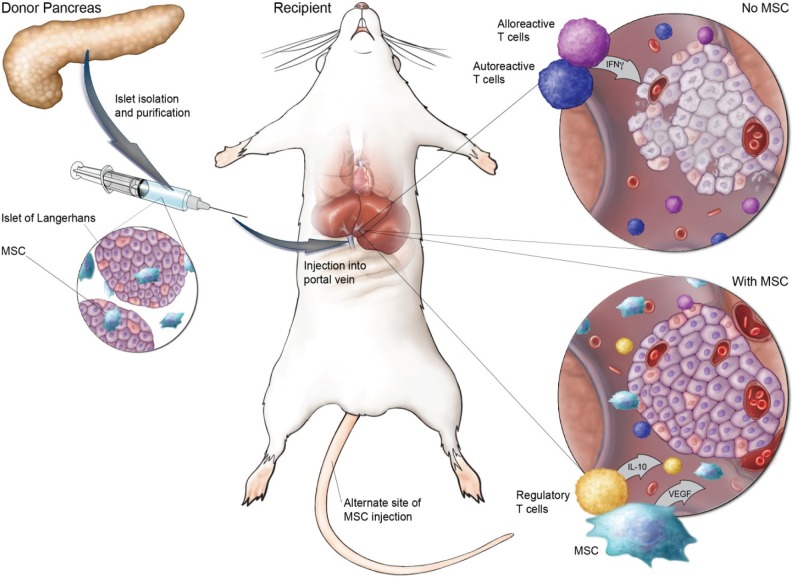Figure 1.
Schematic of the preclinical rodent studies on MSC support of islet transplantation. Mesenchymal stromal cells (MSCs) can be coadministered with islets into the portal vein, or alternatively, injected intravenously posttransplant. After islet transplantation alone (top right inset), alloreactive T cells secrete inflammatory cytokines such as interferon-γ (IFN-γ), and a lack of revascularization can lead to poor engraftment and death of islets. In the presence of MSCs (bottom right, inset), alloreactive and autoreactive T-cell proliferation is suppressed, while interleukin 10 (IL-10)-secreting regulatory T-cell expansion is supported, and islets are able to sustain engraftment via revascularization in part through production of vascular endothelial growth factor (VEGF) by MSCs.

